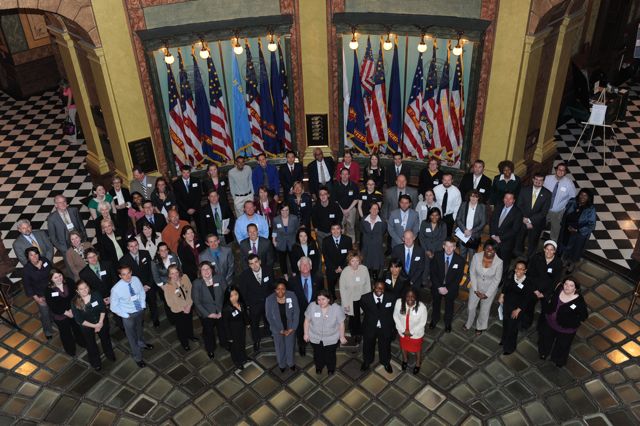A special flag was flown over the ROTC building for the last 24 hours. The flag was sent to President Mroz from Lt. Col. Otha Thornton, a former faculty member and graduate of the Rhetoric and Technical Communication program at Michigan Tech. Lt. Col. Thornton is currently serving in the U.S. Army in Iraq.
The flag has previously flown over Al Faw Palace on September 14, 2009. The flag, which will be lowered and given back to President Mroz today, will be carried by the color guard at spring commencement.
“It’s a reminder how small our world is and how interconnected we all are,” Mroz said.
Published in Tech Today

